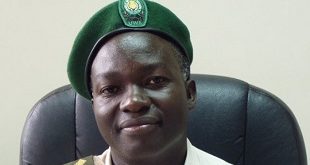
📌 UGANDA 🇺🇬 BACK TO SCHOOL SCHEDULE
▶ P1, P2 & P3 – June 7
▶ P4 & P5 – April 6
▶ P6, S3 & S5 – March 1
▶ S1 – April 12
▶ S2 – May 31
▶ Tech schools/Post Primary institutions – March
▶ Universities – March
📌 UNEB EXAMS TIMETABLE
✳ Feb 26 ▶ UCE Briefing
✳ March 1- April 6 ▶ UCE exams
✳ March 26 ▶ PLE briefing
✳ March 30-31 ▶ PLE exams
✳ April 9 ▶ UACE briefing
✳ April 12- May 3 ▶ UACE exams
Kampala, Uganda | THE INDEPENDENT | Teachers from several schools do not think they will be able to finish the vast amount of content for the different class syllabus as the non-candidates report for the shortened learning period.
The Ministry of Education has already advised that teaching in the shortened learning period will be focusing on covering the required content rather than terms and tracing for the lost calendar time, to enable attain the required competencies.
However, a cross-section of teachers interviewed said that this is a very limited time which cannot enable the completion of the syllabus whatsoever.
Hassan Gombe, a teacher at Mulago high school says teaching and learning activities might end up occupying the learners all the time for the said weeks with very limited breaks as teachers will be racing to have the syllabus covered.
To him, the situation will be worse for learners in boarding sections and those in semi-candidate classes.
Zainab Maka, headteacher at Mbogo High School also notes that although the allocated time is very limited for the teachers to cover the syllabus, the situation is not normal and therefore teachers and schools at large have to look for workable solutions.
Asked how they intend to handle the situation when learners return starting March 1, Maka stressed that it will be a marathon as teachers will be racing against time.
Normally, learners have over 270 days divided into three terms to cover a given class syllabus. However, due to unprecedented school closures, learners might not even get have half of the said days to complete the academic year.
The semi-candidates (P.6, S.3, and S.5) and their senior one counterparts were allocated 14 weeks of study, those in S.2 will have 10 weeks while the rest have eight weeks.
As the teachers are worried, learners are also worried about how they will be able to learn the academic year content in just weeks.
📌 BACK TO SCHOOL PLAN
✳ At school P7, S4 & S6
✳ March 1 – P6, S3 & S5 resume
✳ April – S1-S2,P1,P2,P3,P4,P5 staggered back
✳ July – School year 2020 ends#EDUCATION: Full list of #Museveni decisions on school re-openinghttps://t.co/D1adW4w0I1#Uganda#Covid19 pic.twitter.com/ipfMAKslaS— The Independent (@UGIndependent) February 5, 2021
Lucky Ekinaheirwe, a student whom this reporter found at Kololo High School requesting for admission in S.5 expressed fear whether she will be able to study senior five content in the allotted time, proceed to S.6 and be able to pass Uganda Advanced Certificate of Education examinations in the next academic year.
“I think that time is so little,” says Ekinaheirwe. I have seen S.5 students reading a lot of lesson notes and spending sleepless nights. That is for S.5, then they have to do the same in S.6 and there it gets worse. Now imagine for us we have weeks to cover what they usually cover in a year!”
However, Dr Bernadette Nambi, Deputy Director at National Curriculum Development Centre says that even though time is limited, teachers ought to devise better approaches and methods of learning.
Dr Nambi says that besides looking at the huge content in the syllabus and throwing it to learners as it appears, teachers should use soft learner-centered methods and also put the focus on fundamentals. She notes that this will enable learners to attain given competence than cramping the content.
She further notes that over time, there have been complaints of rote learning which learners are subjected to. To her, the shortened learning period challenges teachers to teach their learners how to learn so that they can teach themselves several things with a teacher as a guide.
Dr Tony Mukasa Lusambu, an education consultant notes that when children go back to school, there will be an urgent need to recover lost learning given the fact that at each stage, there is something a child might learn.
Lusambu who is a former commissioner at the education ministry says individual schools should redesign their time tables and also employ learner-centered approaches. He notes that when learners take the lead, a lot can be covered in a short time.
As an alternative, Lusambu suggests that this can be a better time for the government to employ the accelerated learning curriculum which has already given better results in refugee-hosting communities.
The education minister Janet Kataha Museveni advised that apart from semi-candidates, teachers needn’t worry about coverage of the entire syllabus.
Janet Museveni was of the view that other learners still have time in their respective education cycles to recover the lost time over two to three years and will eventually acquire the desired competence.
******
URN
 The Independent Uganda: You get the Truth we Pay the Price
The Independent Uganda: You get the Truth we Pay the Price



